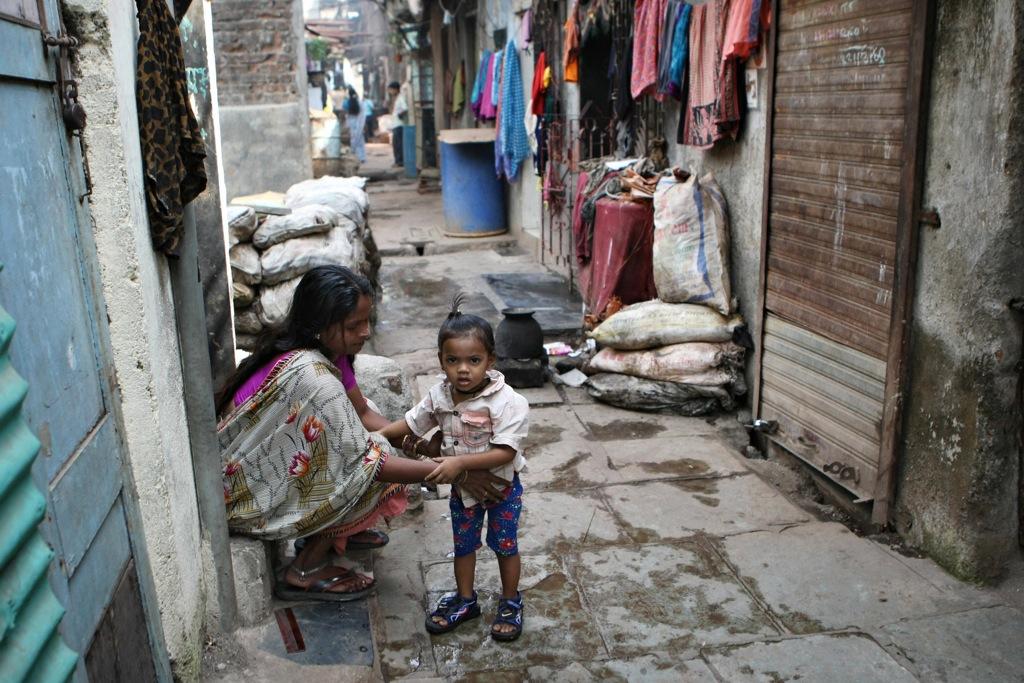India: Poor choose cash transfers over food subsidy
A mother tends to her child in Dharavi slum in Mumbai on January 20, 2009.
Over the past year or so, Indian experts have been wrangling over whether or not to scrap the so-called “public distribution system” that provides food to the poor at subsidized rates in favor of giving them cash to spend as they will.
Cash would help eliminate some corruption, advocates say, arguing that with cash in hand the poor won't be at the mercy of the owners of “ration shops,” who frequently short-change them and sell the subsidized grain in the ordinary market.
However, others say dispensing cash won't eliminate abuses, and worse still, will allow recipients to spend it on all kinds of stuff besides food, such as booze.
What do the poor think?
According to a pilot program rolled out in a slum in West Delhi, the poor, just like everybody else, prefer cash.
Citing Sunita, a participant in the pilot program, the Hindustan Times writes that poor people used to get about 300 rupees worth of food and other essentials from the ration shop, and then supplement that with another 1000 rupees worth she had to buy on the open market. Under the cash transfer pilot, she got 1000 rupees of cash, which went further.
“Earlier, we ahd to wait for weeks for the supplies,” the paper quotes Sunita as saying. “And when they finally arrived, the quantity would be less than our entitlement. Moreover, a substantial part of our grain supply would consist of chaff. This is why we had to shell out 1000 rupees to make up for the rest of the month.”
“People under the cash transfer scheme do not have to make the rounds of the ration shops and eat substandard food,” said another resident, who was not selected for the pilot. “Given a choice, we would opt for cash transfer.”
We want to hear your feedback so we can keep improving our website, theworld.org. Please fill out this quick survey and let us know your thoughts (your answers will be anonymous). Thanks for your time!
